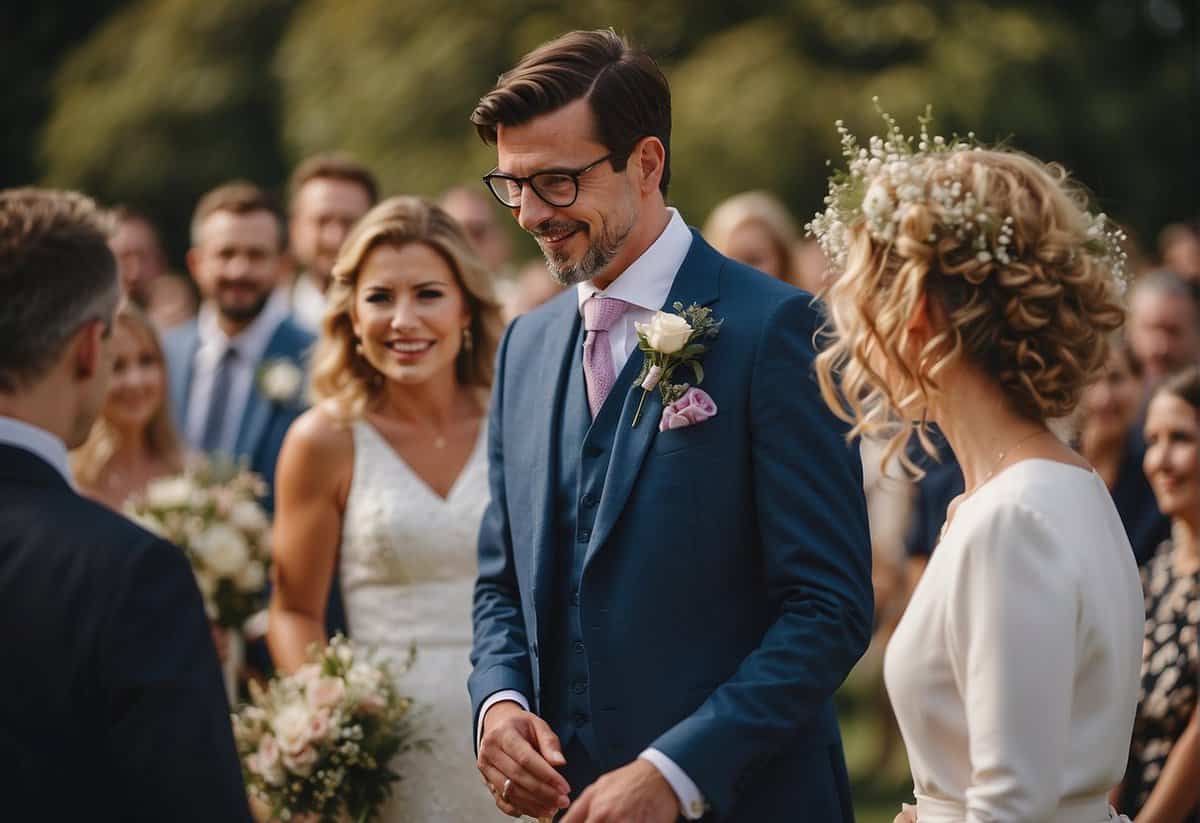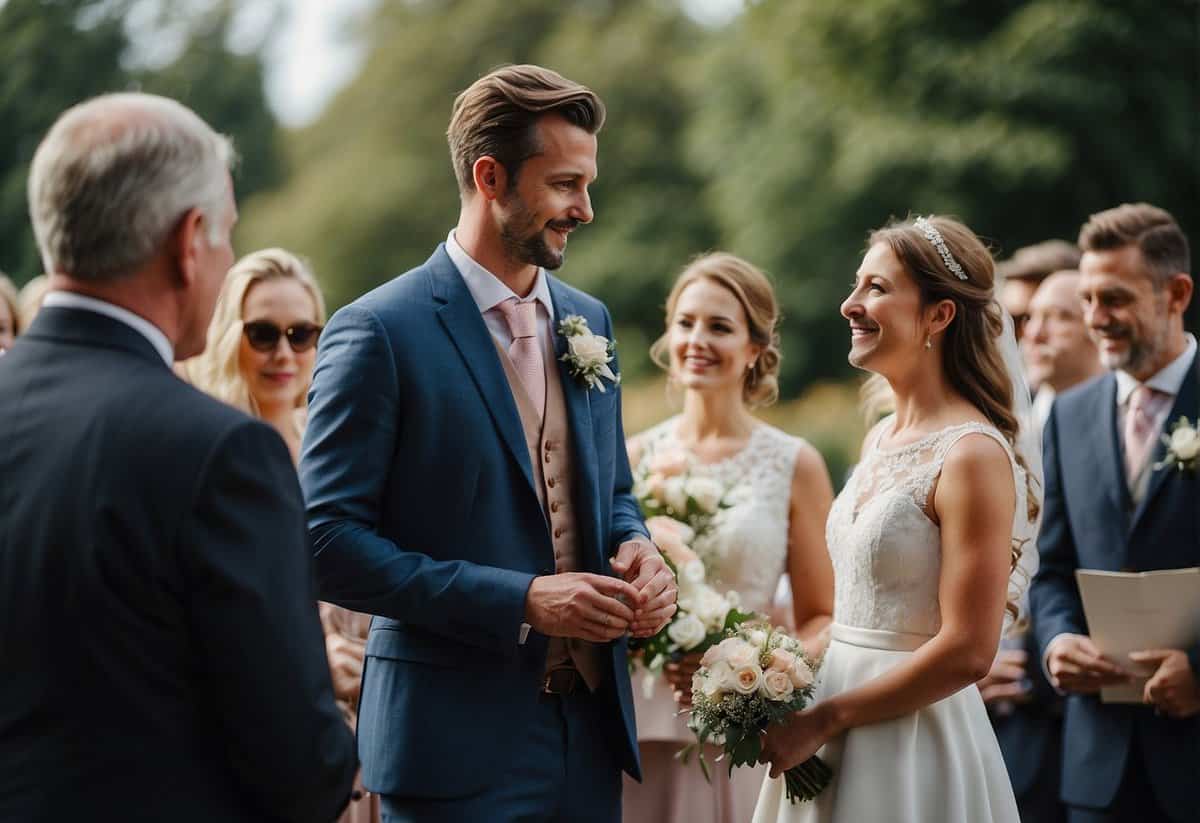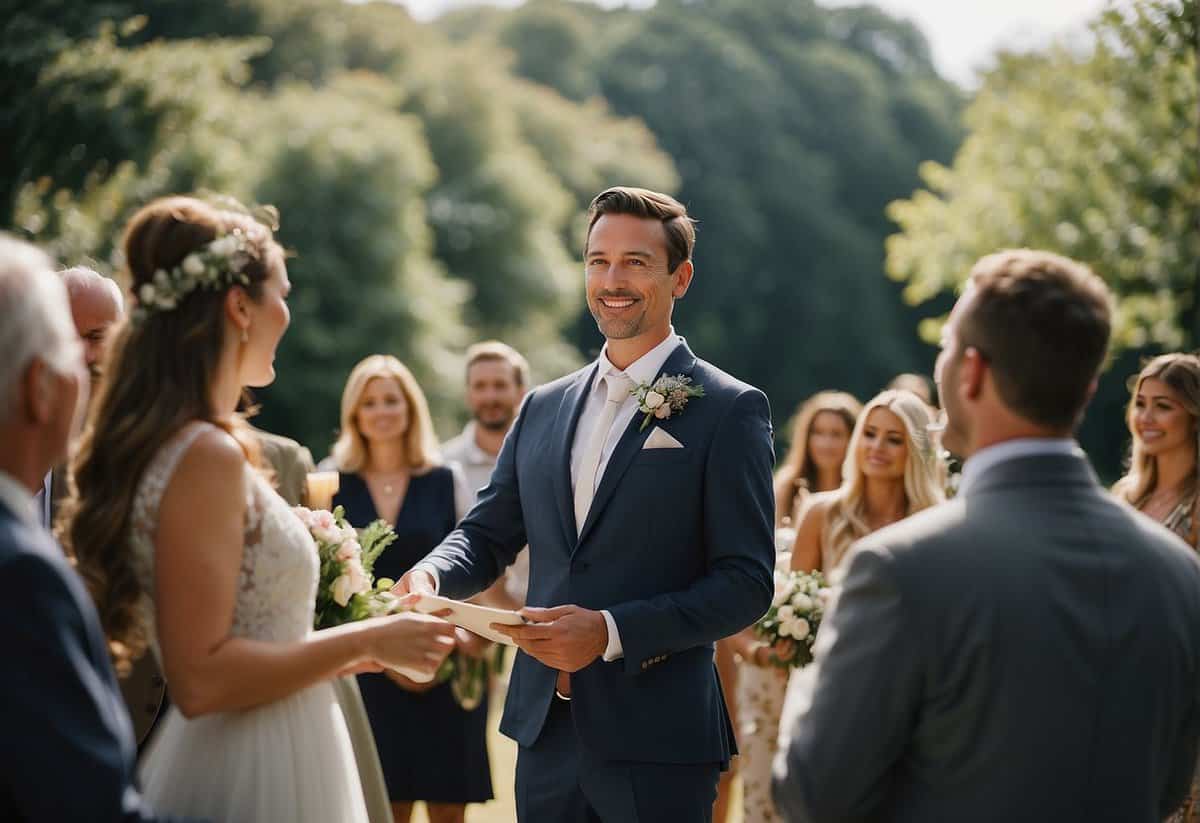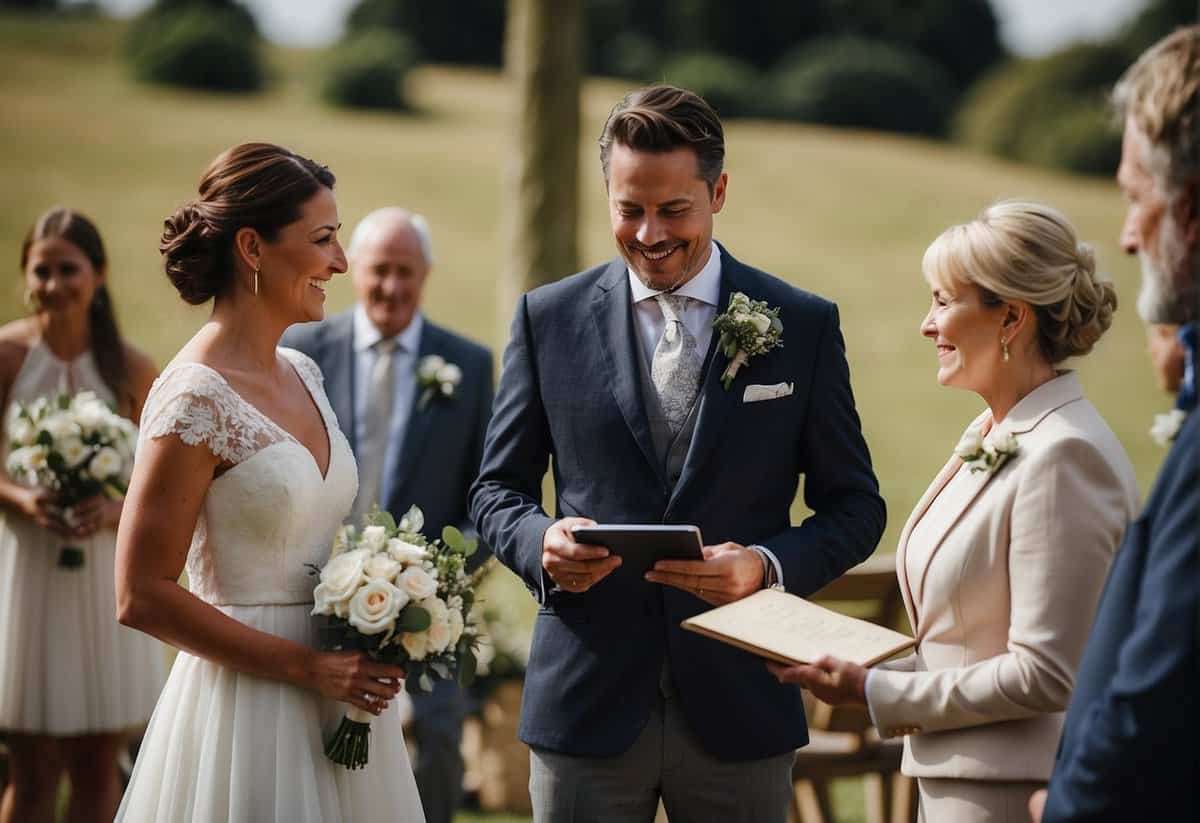Can a Celebrant Legally Marry You in the UK Without a License? What You Need to Know
When planning your wedding in the UK, it’s important to understand the legalities involved, especially if you’re considering a celebrant-led ceremony. In the UK, the legality of marriages is determined by strict regulations. While a celebrant can create a deeply personal and meaningful wedding ceremony, the legal authority to marry couples rests with the registrars or ordained clergy within certain recognized faiths. England and Wales, for instance, require a civil ceremony at a registry office or a religious ceremony at a recognized place of worship to legally formalize the marital bond.

If you’re drawn to the personalized approach of a celebrant-led wedding, it’s key to note that in most of the UK, these ceremonies are not legally binding on their own. In Scotland and Northern Ireland, the rules differ, with humanist celebrants authorized to legally officiate marriages. To ensure that your marriage is legally recognized, you must arrange for a formal legal signing, which can be separate from your celebrant-led ceremony. This could be a simple, understated event, allowing you to save the grander expressions of vows and ring exchanges for a celebrant-officiated occasion.
Key Takeaways
- Understand the legal regulations concerning marriage in the UK.
- Celebrant-led ceremonies are not legally binding in England and Wales.
- A formal legal signing is necessary to ensure your marriage is recognized.
Legal Framework for Marriages in the UK

When planning your wedding day in the UK, understanding the legal requirements is essential as these rules ensure that your marriage is legally recognized.
Legal Requirements
To have a legal marriage in the UK, you must satisfy several conditions. Firstly, you and your partner must give a notice of marriage at your local registry office at least 28 days before the wedding. Your ceremony can be a civil ceremony or a religious ceremony, but it needs to be conducted by a licensed registrar or an approved religious official. The venue where the marriage takes place must also be officially sanctioned. Importantly, the ceremony must be witnessed by two witnesses and declaratory words must be spoken, affirming the intent to marry. Following the ceremony, a marriage certificate is issued as proof of the lawful union.
Types of Ceremonies
In the UK, couples have the option to choose between different types of ceremonies. A civil ceremony is non-religious and typically performed by a registrar, which can be personalized but must include legally required elements and take place in an approved venue. A religious ceremony is one that follows the traditions of a religious faith. Certain religious groups such as Quakers or Jews can marry within their own rites and customs. Alternatively, there are humanist celebrants who conduct non-religious ceremonies in Scotland and Northern Ireland that are recognized as legally binding. Yet, in England and Wales, a celebrant-led ceremony by itself is not recognized as a legal marriage without a separate civil ceremony.
Recognizing Foreign Marriages
If you’ve married abroad, your marriage will usually be recognized in the UK provided it’s legally valid in the country where it took place and would’ve been legal if conducted in the UK. However, you must have the appropriate documentation, such as a foreign marriage certificate, and it must conform to the necessary UK regulations. A marriage performed by a humanist celebrant abroad will also need to meet the local legal requirements to be considered legally binding back home in the UK. If in doubt, contact a registry office for advice on your specific circumstances.
The Role of Celebrants in UK Weddings

When planning your UK wedding, understanding the distinction between a celebrant and a registrar is key to realizing your vision for your special day.
What Celebrants Do
Celebrants bring a personal touch to your ceremony, taking time to understand your love story and values. They’re there to craft an event that reflects your individual personalities, incorporating meaningful readings, music, and your own commitment to each other. While a celebrant-led ceremony may not legally marry you without the presence of an authorised registrar in some parts of the UK, it allows for a highly personalized and symbolic celebration of your union.
Differences Between Celebrants and Registrars
A registrar is a government official who is authorised to conduct the legal part of the marriage. This includes signing the official documents that legally record the marriage. On the other hand, a celebrant is someone who leads the ceremony part of your wedding. Celebrants may specialize in non-religious, interfaith, or cultural ceremonies, but, with the exception of humanist celebrants in Scotland and Northern Ireland, they cannot complete the legal aspect of your marriage.
Choosing Your Celebrant
When you’re ready to book a celebrant, think about the type of relationship you wish to build with them. It’s important that they resonate with your preferences for the day, whether that’s weaving in your unique love story or creating a ceremony steeped in non-religious or spiritual elements. Start your search by looking at profiles of local wedding celebrants or seeking recommendations from friends, celebrating the fact that your ceremony will be one-of-a-kind, crafted just for you.
Planning and Executing the Ceremony

When you’re putting together your wedding ceremony in the UK, understanding the distinction between the legal process and the celebratory elements is key. You’ll navigate through legalities, craft a ceremony that reflects your values, and choose a venue that sets the perfect stage.
The Legal Process
To ensure your marriage is legally recognized, you’ll need to complete specific steps. First, both of you must give notice at your local office at least 29 days before your planned wedding date; this is your official notice of intention to marry. During this time, you will get your legal documentation in order, which typically involves providing personal details and fulfilling residency requirements. At a legal service, you and your partner must exchange legal statements in front of two witnesses to meet the legal requirement of marriage. It’s worth knowing that the legal part often occurs separately from the celebrant-led ceremony.
Designing the Ceremony
After taking care of the legalities, designing your celebrant-led ceremony can be truly personalized. The format and flow of the ceremony are in your hands. Feel free to include your own vows, readings, and music to reflect your personalities. A celebrant is there to help make your ceremony unique and can advise on including any meaningful elements.
Venue and Witnesses
The choice of venue is flexible; it can be anywhere from your own land, a stately home, or any place meaningful to you. Unlike the legal part which requires a licensed venue, celebrant-led ceremonies have no such restriction. Ensure the temperature and environment are comfortable for your guests, whether the ceremony is inside or outdoors. Remember, even though the celebrant-led part doesn’t have a legal standing, you still need at least two witnesses present to observe this personal commitment.
Frequently Asked Questions

Navigating the legal landscape of marriage in the UK can be complex, but understanding the specifics ensures your special day is both memorable and legally recognized. Here’s a breakdown of the most common queries to guide you through the process.
What are the legal requirements for a marriage to be recognized in the UK?
To have a legally recognized marriage in the UK, you must hold the ceremony at a registered venue, have two witnesses present, and ensure the officiant is legally authorized. Marriage must also be preceded by giving notice at your local register office.
Are there specific qualifications someone must have to officiate a legally binding marriage in the UK?
Yes, to officiate a legally binding marriage in the UK, the person must be an authorized registrar or a religious officiant recognized by the state. In some parts of the UK, humanist celebrants are also granted the authority to legally marry couples.
How does one become a wedding celebrant in the UK?
To become a wedding celebrant in the UK, one typically undertakes training provided by celebrant organizations. While celebrants can conduct ceremonies, becoming a celebrant does not automatically grant the authority to perform legal marriages.
Is a ceremony conducted by a celebrant considered official without a civil registration?
No, a celebrant-led ceremony is not considered legally binding in England and Wales without a separate civil registration. Scotland and Northern Ireland have different provisions where humanist celebrants may legally marry couples.
What is the difference between a registrar and a celebrant-led wedding in the UK?
A registrar-led wedding is legally binding and typically conducted at a registry office or approved venue. A celebrant-led wedding allows for more personalized and potentially non-legal ceremonies, often requiring separate civil registration to become official.
What steps are necessary to ensure a marriage is legally binding if using a celebrant?
If you’re using a celebrant in England or Wales, you need to legally register your marriage at a registry office either before or after the celebrant-led ceremony. In Scotland and Northern Ireland, check if your celebrant is recognized to officiate legal marriages.

